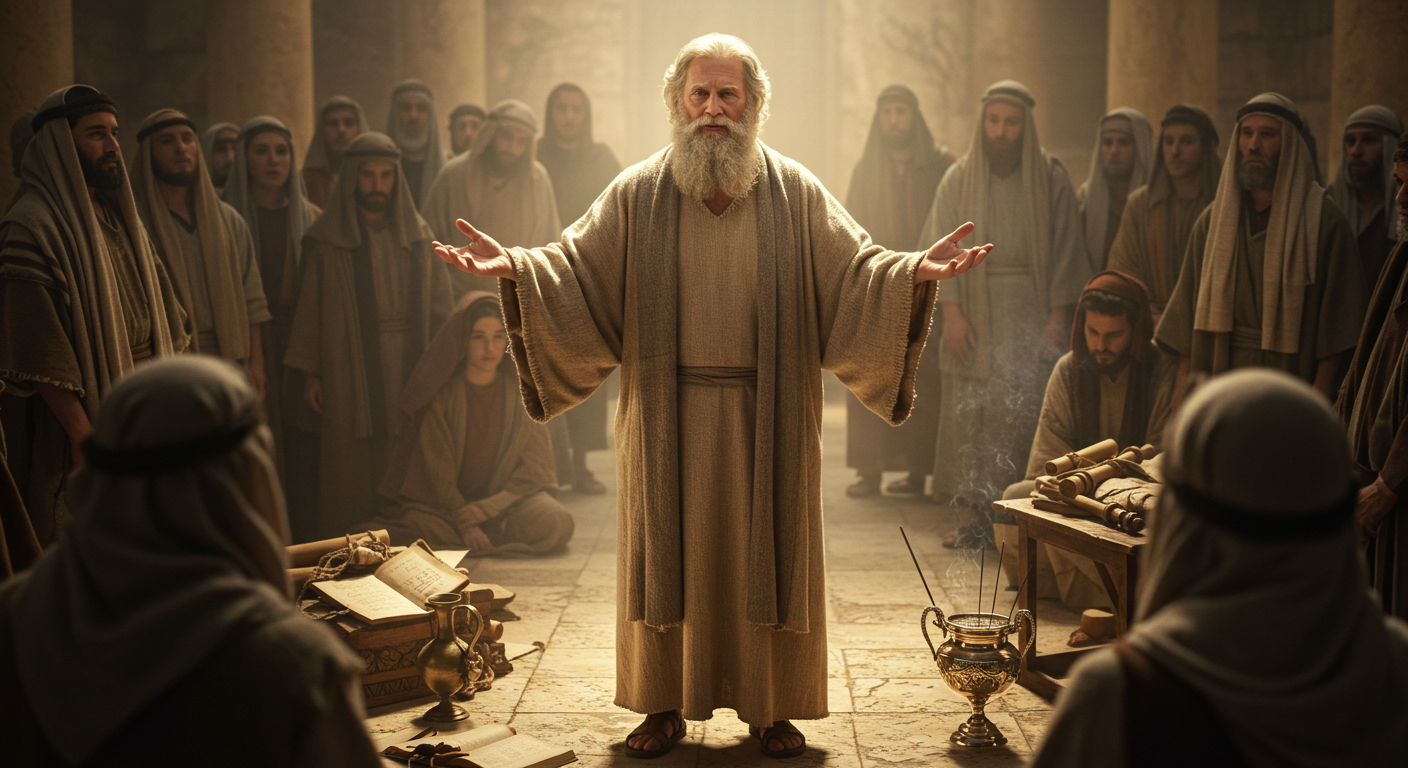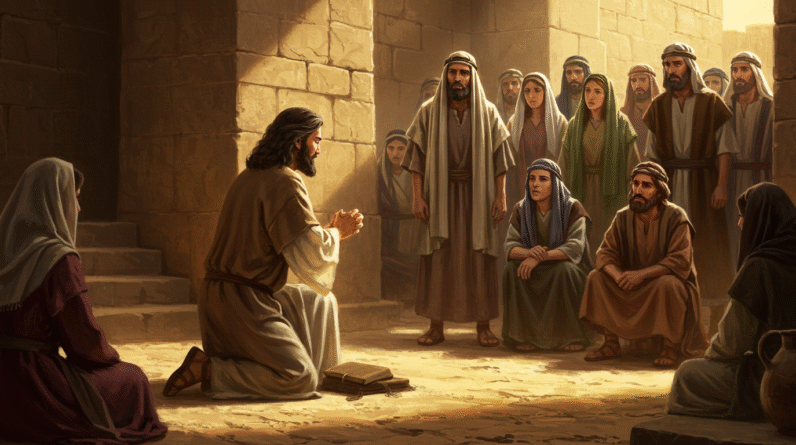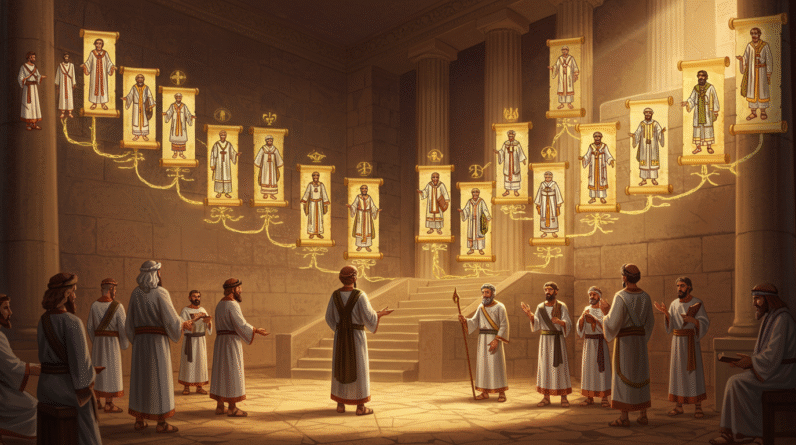The Legacy of Aaron: Lessons for Today’s Spiritual Leaders
In exploring the legacy of Aaron, we unearth both timeless wisdom and cautionary tales that resonate with today’s spiritual leaders. Aaron, the elder brother of Moses, was a pivotal personality in the exodus narrative and played a crucial role as the first high priest of the Israelites. His life presents a complex tapestry of faith, leadership, conflict, and human fallibility, offering lessons for pastors, priests, and lay leaders alike. As we dive into his story, let’s reflect on the layers of Aaron’s life and how they speak to the responsibilities and challenges of today’s spiritual leadership.
Aaron as a Faithful Assistant
Aaron’s journey began as a faithful assistant to his brother Moses. He is first introduced in the Book of Exodus as Moses’ eloquent spokesman. The dynamics of their partnership highlight the importance of collaboration in leadership. Aaron’s willingness to support Moses without seeking the limelight is a remarkable display of humility and teamwork. In today’s church leadership, this serves as a reminder that effective ministry often requires shared vision and cooperative efforts.
Aaron’s role as a spokesperson also underscores the importance of communication. As a leader, being able to convey messages clearly and effectively can influence the spiritual journey of congregations. Aaron’s story reminds us that communication isn’t just about speaking, but listening and understanding the needs of your community as well.
Aaron’s Appointment as High Priest
After the Israelites’ exodus from Egypt, Aaron was appointed as the first high priest, a role carrying immense spiritual significance and responsibility. His appointment marks a foundational moment for the priesthood in the biblical tradition. Aaron’s role required strict adherence to religious rituals and maintaining an example of holiness among the people.
Modern spiritual leaders can draw from Aaron’s priesthood the significance of stewardship. In leading a community, pastors and priests today must recognize the gravity of setting a spiritual example and guiding their congregation with integrity and humility. Aaron’s experience points to the reverence and respect that must accompany the responsibilities of spiritual leadership.
The Incident with the Golden Calf
Despite his high calling, Aaron was not immune to missteps. One of the most significant blunders of his leadership was his role in the creation of the golden calf (Exodus 32), an event that stands as a cautionary tale. While Moses was on Mount Sinai receiving the Ten Commandments, the Israelites grew impatient and pressured Aaron into creating a physical representation of God.
The allure of appeasing public demand versus standing firm in faith is a timeless challenge for spiritual leaders. Aaron’s actions remind us that leadership requires vigilance and the courage to stand firm in one’s principles, even amid growing pressure. The incident invites reflection on how easily one can divert from faith-centered leadership, offering a poignant lesson on the consequences of yielding to the crowd.
The Strength of Aaron’s Intercession
Amid his shortcomings, Aaron’s capacity for intercession and prayer remains an inspiring aspect of his legacy. When God threatened to unleash His wrath upon the Israelites after the golden calf debacle, Moses pleaded for mercy. Aaron, too, had moments of interceding for the people. This highlights the power of prayer as an integral function of spiritual leadership.
Prayer and intercession remain powerful components in the toolkit of today’s spiritual leaders. Aaron’s legacy in this regard reminds us that praying for one’s community and seeking divine guidance can have profound impacts not only on personal growth but also on the collective well-being of congregants.

Aaron and Family Dynamics
Leadership doesn’t exist in a vacuum, and Aaron’s story illustrates the incredible influence of family dynamics. As Moses’ older sibling, Aaron often navigated the complexities of sibling relationships while fulfilling his role. Moreover, his sons’ participation in the priesthood extended Aaron’s legacy, but not without struggles of their own, including the tragic story of Nadab and Abihu (Leviticus 10).
For contemporary spiritual leaders, Aaron’s family story offers a lens to examine how personal relationships and family life can intersect with ministerial duties. It serves as a reminder that nurturing healthy family relationships can be as significant as caring for one’s congregation.
Addressing Jealousy and Conflict
Aaron’s life was not devoid of internal conflict and moments of jealousy. An example is seen in the sibling rivalry involving him and his sister Miriam against Moses (Numbers 12). This episode shows the human propensity towards envy, even among leaders, and the importance of addressing conflicts openly.
In the context of spiritual leadership today, Aaron’s experience stresses the necessity of resolving disputes with grace and honesty. Addressing jealousy and competition within leadership teams can prevent discord and foster a more united and effective ministry environment.
Aaron’s Death and Succession
The end of Aaron’s life marks a profound moment in the biblical narrative. Deuteronomy 10:6 mentions his death, and Numbers 20 details his final moments on Mount Hor, where his priestly garments were passed on to his son Eleazar, signifying a seamless transition of leadership.
Succession planning is a critical component for any enduring ministry. Aaron’s peaceful transition underscores the importance of preparing the next generation of leaders to assume significant roles. Spiritual leaders today should strive to mentor and empower younger members of their community to carry on the vision and mission of their ministry.
Embracing Imperfection
Aaron’s life, a blend of divine duty and human error, illuminates a universal truth: leaders are inherently imperfect. Acknowledging imperfection allows leaders to connect authentically with their communities. Aaron’s failures and triumphs are reminders that vulnerability and authenticity in leadership can be powerful tools for growth and connection.
Today’s spiritual leaders can take comfort in the lessons from Aaron’s legacy, knowing that imperfection is not a deterrent to impactful leadership but a part of the human experience that can foster empathy and understanding among the community.
The Enduring Legacy of Aaron
In reflecting on the legacy of Aaron, spiritual leaders today are encouraged to examine the entirety of his narrative—the highs and lows—and how it applies to modern ministry. His life speaks to the complexities of leadership, the virtues of humility and communication, and the ever-present need for integrity and courage.
Explore More
For further reading and encouragement, check out these posts:
👉 7 Bible Verses About Faith in Hard Times
👉 Job’s Faith: What We Can Learn From His Trials
👉 How To Trust God When Everything Falls Apart
👉 Why God Allows Suffering – A Biblical Perspective
👉 Faith Over Fear: How To Stand Strong In Uncertain Seasons
👉 How To Encourage Someone Struggling With Their Faith
👉 5 Prayers for Strength When You’re Feeling Weak

📘 Jesus and the Woman Caught in Adultery – Grace and Mercy Over Judgement
A powerful retelling of John 8:1-11. This book brings to life the depth of forgiveness, mercy, and God’s unwavering love.
👉 Check it now on Amazon
As a ClickBank Affiliate, I earn from qualifying purchases.
Acknowledgment: All Bible verses referenced in this article were accessed via Bible Gateway (or Bible Hub).
“Want to explore more? Check out our latest post on Why Jesus? and discover the life-changing truth of the Gospel!”








